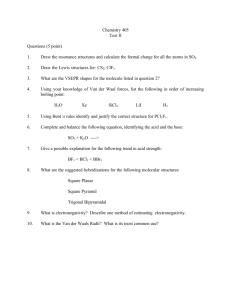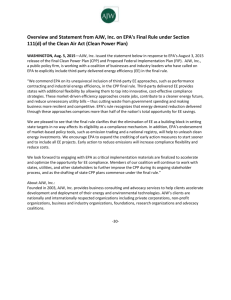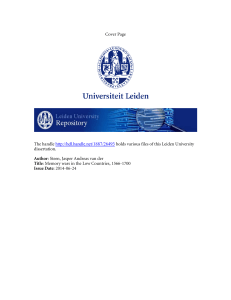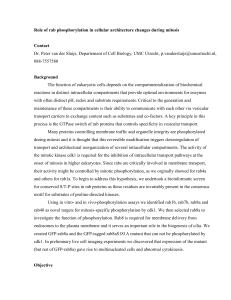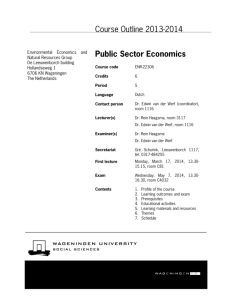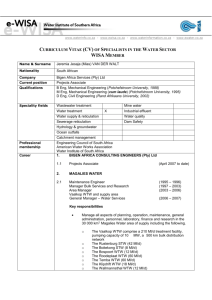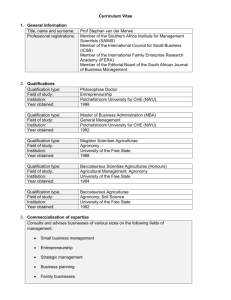A note on the LEIDS-Revised
advertisement
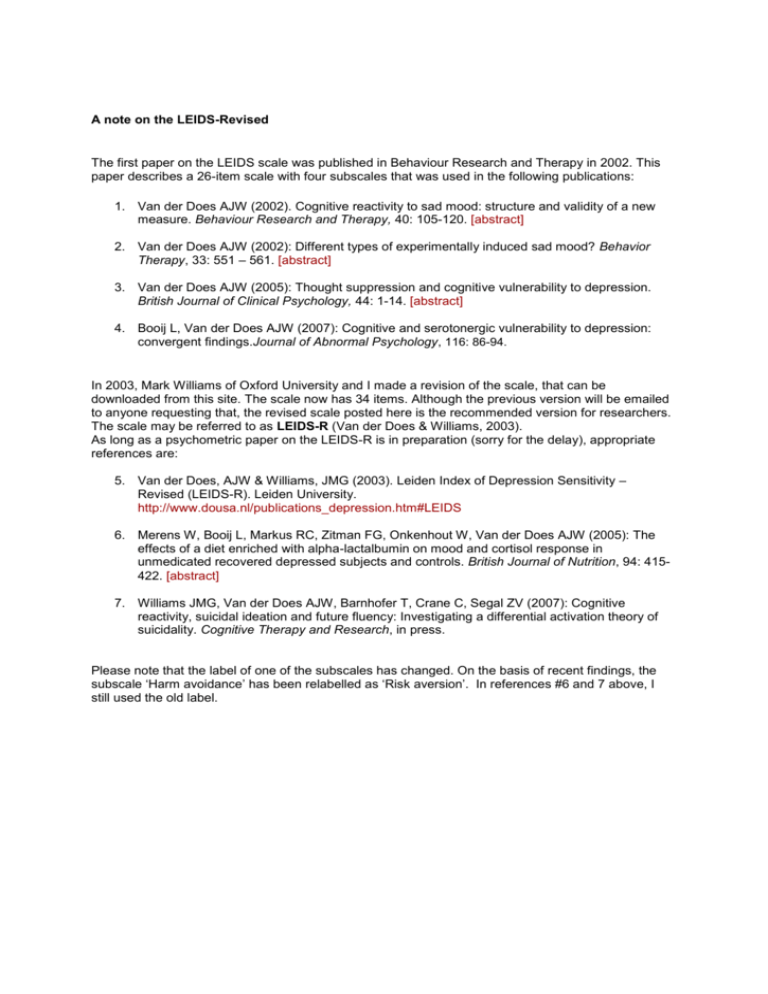
A note on the LEIDS-Revised The first paper on the LEIDS scale was published in Behaviour Research and Therapy in 2002. This paper describes a 26-item scale with four subscales that was used in the following publications: 1. Van der Does AJW (2002). Cognitive reactivity to sad mood: structure and validity of a new measure. Behaviour Research and Therapy, 40: 105-120. [abstract] 2. Van der Does AJW (2002): Different types of experimentally induced sad mood? Behavior Therapy, 33: 551 – 561. [abstract] 3. Van der Does AJW (2005): Thought suppression and cognitive vulnerability to depression. British Journal of Clinical Psychology, 44: 1-14. [abstract] 4. Booij L, Van der Does AJW (2007): Cognitive and serotonergic vulnerability to depression: convergent findings.Journal of Abnormal Psychology, 116: 86-94. In 2003, Mark Williams of Oxford University and I made a revision of the scale, that can be downloaded from this site. The scale now has 34 items. Although the previous version will be emailed to anyone requesting that, the revised scale posted here is the recommended version for researchers. The scale may be referred to as LEIDS-R (Van der Does & Williams, 2003). As long as a psychometric paper on the LEIDS-R is in preparation (sorry for the delay), appropriate references are: 5. Van der Does, AJW & Williams, JMG (2003). Leiden Index of Depression Sensitivity – Revised (LEIDS-R). Leiden University. http://www.dousa.nl/publications_depression.htm#LEIDS 6. Merens W, Booij L, Markus RC, Zitman FG, Onkenhout W, Van der Does AJW (2005): The effects of a diet enriched with alpha-lactalbumin on mood and cortisol response in unmedicated recovered depressed subjects and controls. British Journal of Nutrition, 94: 415422. [abstract] 7. Williams JMG, Van der Does AJW, Barnhofer T, Crane C, Segal ZV (2007): Cognitive reactivity, suicidal ideation and future fluency: Investigating a differential activation theory of suicidality. Cognitive Therapy and Research, in press. Please note that the label of one of the subscales has changed. On the basis of recent findings, the subscale ‘Harm avoidance’ has been relabelled as ‘Risk aversion’. In references #6 and 7 above, I still used the old label.
